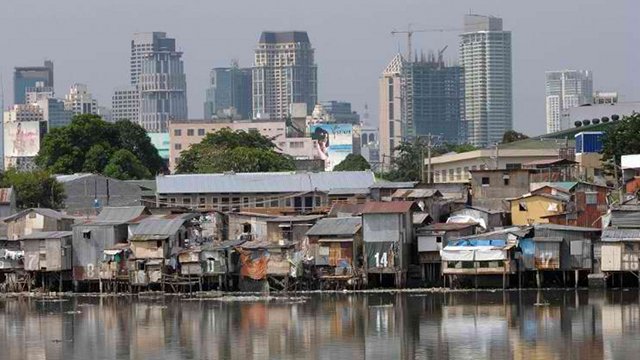SUMMARY
This is AI generated summarization, which may have errors. For context, always refer to the full article.

MANILA, Philippines – Middle class and poor families paying rent will get longer relief with the two-year extension of rent control.
Vice President Jejomar Binay announced that the Housing and Urban Development Coordinating Council (HUDCC) extended the rent control set to expire on December 31. Known as the housing czar, Binay is the HUDCC chairman.
The Rent Control Act of 2009 sets a rent raise ceiling for residential units in the National Capital Region (NCR) and other highly urbanized cities whose monthly rent does not exceed P10,000. The law also covers units in other areas with rental rates of up to P5,000 a month.
The law prohibits the increase of the rent of these housing units by more than 7% annually as long as the units are occupied by the same tenants.
“We want to help renting families have a breathing room given the recent increases in power rates and the natural calamities we experienced,” Binay said in a statement on Wednesday, December 18.
In past months, the Philippines was hit by a series of disasters, including Super Typhoon Yolanda (Haiyan), the world’s most powerful typhoon. Several other typhoons also battered the Philippines along with the Visayas earthquake and the Zamboanga siege.
The rent control law allows the HUDCC “to continue the regulation of certain residential units including subsequent extensions and even the adjustment of the yearly rate increase.”
Binay said HUDCC extended the rent control up to December 2015 based on the initial results of a study the agency commissioned. The Statistical Research and Training Center under the National Economic Development Authority conducted the study.
The Vice President said preliminary findings of the study showed that about 1.5 million households or 7.2% of the 21.5 million household nationwide are families and individuals paying rent. Of this figure, 97% pay rent of P10,000 and below monthly.
The study also found that in 2012, the monthly average family income of “renters” was P23,968. For NCR, the income was P27,246; and for other areas, P20,794. Families in the capital spend 12.4% of their income on rent.
Binay’s office said though that the findings need validation because the housing figures from the 2010 Census of Population and Housing are not yet available.
More data are required, like the Wholesale Price Index for Construction Materials, Real Estate Price Index, and Depreciation Costs “to provide a comprehensive analysis on rental regulation.”
Former President Gloria Macapagal-Arroyo signed the rent control law in 2009. It was aimed at helping poor families renting homes from incurring more expenses amid an economic slowdown.
Congress to pass resolution on extension
Senate President Pro-Tempore Ralph Recto, one of the proponents of the extension, hailed the HUDCC decision and said Congress will pass a resolution “expressing its conformity.”
Recto said HUDCC officials conveyed Binay’s request for a congressional resolution to “validate” the rent control extension.
While the extension does not require a resolution from Congress, Recto supported Binay’s request and said “there is no harm in redundancy.”
Recto filed a bill last month to extend the rent control but said the HUDCC decision was the faster mode of doing this.
The senator said the rent control extension will not affect investments needed to reduce the housing backlog because the law does not cover units with a monthly rent greater than P10,000 in NCR and P5,000 in other areas.
“Units being rented above the said amounts are deregulated,” Recto said in a statement.
“We are only protecting the middle class and the poor and not some rich guy who has the money to rent a Forbes Park mansion,” he added.
Recto stressed the importance of rent control.
The law forbids the owner of the residential unit from demanding more than one-month advance rent and more than two months-deposit. Any interest will be returned to the renter at the end of the lease agreement.
The tenant also cannot be ejected on grounds that the unit was sold or mortgaged to a third person.
“Rent control is a mechanism that ensures affordable housing in the Philippines. It also safeguards qualified lessees from arbitrary rent increases and corollary ejection,” Recto said. – Rappler.com
Add a comment
How does this make you feel?





There are no comments yet. Add your comment to start the conversation.